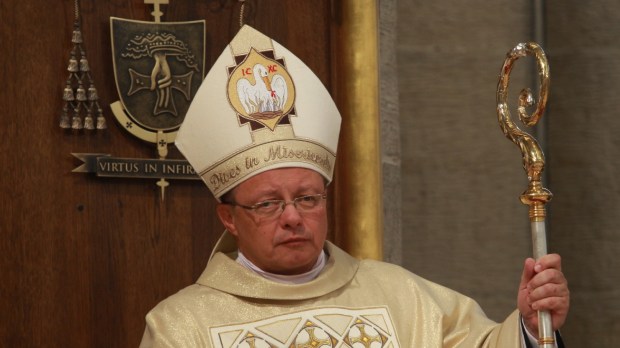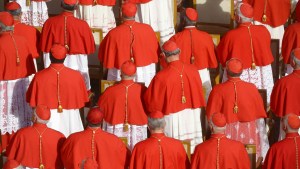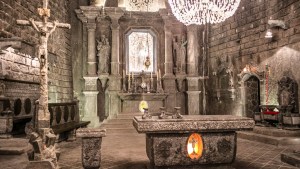Archbishop Grzegorz Ryś, a 59-year-old medievalist historian, is the first member of the Polish Bishops’ Conference whom Pope Francis has created cardinal. He is the Archbishop of Łódź, a diocese of lesser size and historical weight than cities that are historically cardinal’s sees such as Krakow. In choosing him, Pope Francis has opted for a bishop facing the challenges of secularization and endowed with international influence.
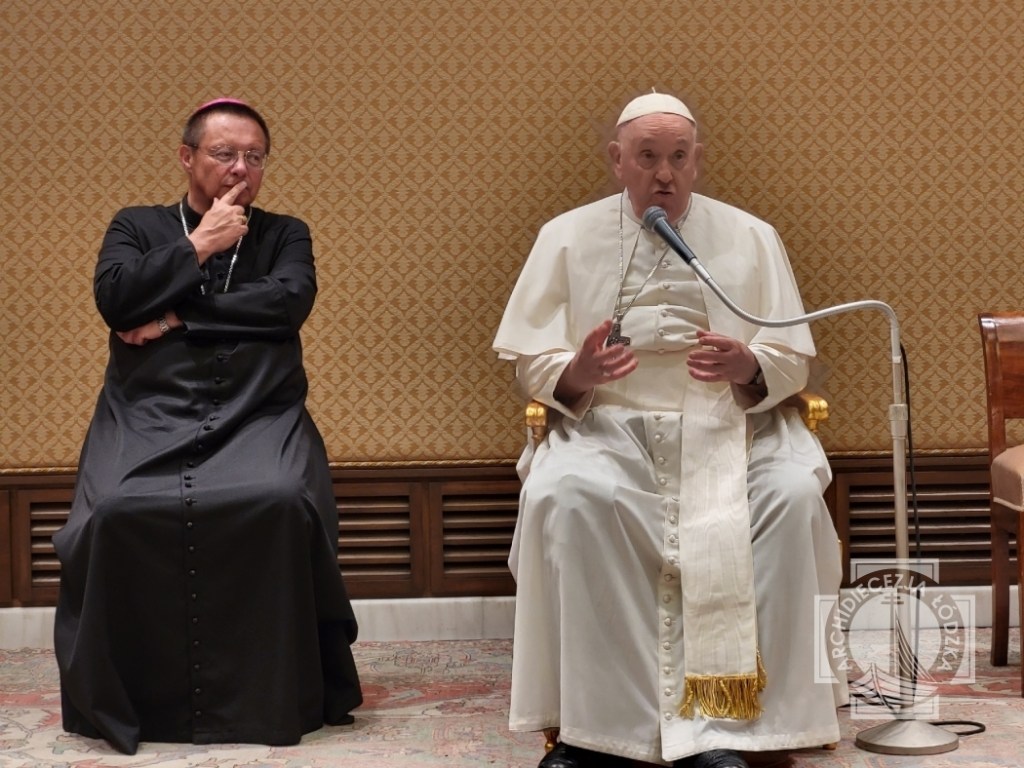
Archbishop Grzegorz Ryś was born on February 9, 1964, in Krakow, where he received baptism from Fr. Ferdinand Machay (1889-1967), an important figure in the ecclesial and political life of interwar Poland. This priest was a member of the Polish National Committee based in Paris from 1917 to 1919. In 1938, President Ignacy Mościcki appointed him a senator. He then become Archpriest of St. Mary’s Basilica in Krakow from the end of the Second World War until his death.
Academic background
The restrictions the the Communist regime imposed on the Catholic Church did not prevent Grzegorz Ryś from starting a long academic itinerary in 1982 at the faculties of Theology and Church History at the Pontifical Academy of Theology in Krakow. Later, in 1994, he obtained a doctorate in theology with a thesis on popular piety in Poland in the Middle Ages.
In 2000 he earned his habilitation (a degree beyond a PhD required to become a university professor in certain European countries) with a second thesis, devoted to the preacher Jan Hus. Hus was a cleric executed for heresy in 1415, the founder of a dissident Church still active in the Czech Republic and considered a precursor of the Protestant Reformation.
Priestly ministry
Meanwhile, Grzegorz Ryś received ordaination to the priesthood in 1988 for the Diocese of Krakow by Cardinal Franciszek Macharski. The latter’s long episcopate in this city, from 1978 to 2005, would span the entire pontificate of John Paul II, his predecessor as Archbishop of Krakow. Cardinal Macharski died in 2016 the day after the closing of the World Youth Day organized in his city. Archbishop Ryś follows in the footsteps of this cardinal, and uses Macharski’s pectoral cross.
After serving as a parish priest in Poland, as well as in London, Fr. Grzegorz Ryś was named the Chair of Medieval History in the History Faculty of the Pontifical University John Paul II. He was also director of the Diocesan Archives in Krakow and worked as a consultant for Polish radio and television, notably during John Paul II’s visits to his native country.
Grzegorz Ryś has earned fame for his numerous publications on history and spirituality and is appreciated for his preaching. He became rector of the Major Seminary of Krakow in 2007, before being appointed Auxiliary Bishop of Krakow by Benedict XVI in 2011.
As Vicar General to Cardinal Stanislaw Dziwisz — John Paul II’s former secretary, who became Archbishop of Krakow in 2005 — Archbishop Ryś was not directly involved in the logistical organization of the World Youth Day in July 2016. However, he was entrusted with the meditations for the Way of the Cross. In the context of the Jubilee of Mercy, these meditations — focused on “the little ones of the Gospel” — focus on 14 works of mercy, seven corporal and seven spiritual. Among them are: housing pilgrims, giving food to the hungry, visiting prisoners, forgiving offenses, instructing the ignorant, and patiently bearing difficult people.
The Church in Poland in the face of secularization
In 2017, Pope Francis appointed him Archbishop of Łódź. This city has strong religious diversity as the historic home of the Jewish presence in Poland, and is experiencing growing secularization. As archbishop, Ryś has particularly committed himself to preserving the memory of the Holocaust and developing Jewish-Christian friendship. He has also made important decisions for the future of his diocese, including the establishment of the permanent diaconate and the creation of the Redemptoris Mater international seminary for the new evangelization.
He is close to the Neocatechumenal Way, which he discovered in London in the 1990s. It was because of this connection that he took part in the Jubilee of the Charismatic Renewal in Rome in 2017. His involvement in the “New Evangelization” and youth pilgrimages, notably to Taizé, have given him national and international visibility.
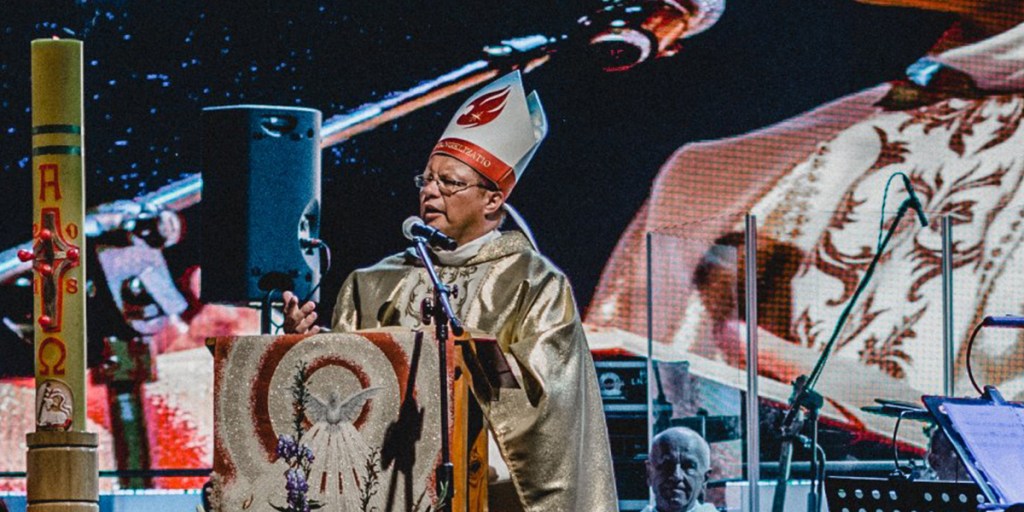
In his role as Archbishop of Łódź, a diocese with a population of 1.4 million people and around 550 incardinated priests, Archbishop Ryś has become one of the main relays of Pope Francis’ message. He has particularly distinguished himself by articulating the challenges of the universal Church with the specificities proper to the circumstances in Poland.
As a sign of confidence in him, in 2020 the Pontiff entrusted him with the sensitive role of Apostolic Administrator of the Diocese of Kalisz. Its incumbent bishop, Bishop Edward Janiak, had been forced to resign for having covered up sexual abuse of minors by a priest.
Distance from politics
In the tense and polarized context of the campaign for the October 15, 2023 elections, Archbishop Ryś has invited the Catholic Church to keep its distance from the debates in order to avoid any risk of instrumentalization. “We have asked politicians not to involve the Church in the campaign,” insists Archbishop Ryś in an interview with the KAI news agency. “Relations between the Church and the political world must be organized as stipulated by our concordat and the Polish constitution. The intention should not be to introduce or deepen divisions in society,” he insists.
The new Polish cardinal, who is only 59, sometimes receives criticism for his numerous trips to Rome and a certain distance from the day-to-day running of his diocese. However, he may find himself entrusted with new responsibilities in Krakow or Warsaw — two dioceses whose archbishops are approaching the retirement age of 75 — or at the Vatican, where the Polish presence has dwindled in recent years.
He is the first bishop active in Central Europe to be created a cardinal by Pope Francis, but another Pole was named in 2018: Cardinal Konrad Krajewski, the papal almoner and now prefect of the Dicastery for the Service of Charity. This “charity Cardinal” has become one of the pontificate’s key figures, notably by carrying out numerous missions in Ukraine. Cardinals Krajewski and Ryś will thus carry Pope Francis’ voice to the Churches of Central and Eastern Europe, which are sometimes disconcerted by certain declarations of the current pontificate, and will be able to relay their concerns to Rome.
